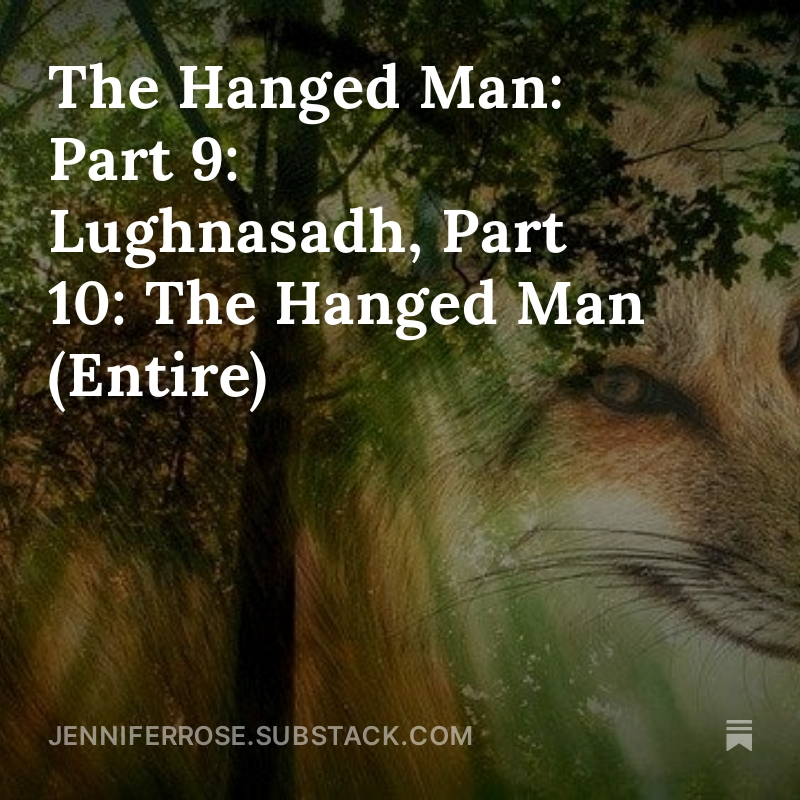by Jenny Rose | Jan 6, 2024 | Aging, Connection & Community, Emotional Intelligence
I’ve been resting in this pause between solstice and the new year. Although I made a conscious choice to set aside everything I could, it was uncomfortable to let this blog lie fallow. On the other hand, I have not been inspired to do much more than manage day-to-day life.
I’m grateful to have moved into new holiday routines after decades of feeling imprisoned by obligation and duty to my fractured family and making Christmas meaningful and fun for my children. Gone are the days of huge, exhausting meals, tight schedules, trying desperately to please everyone at my own expense, spending much of the holidays in the car traveling between homes, and tired, overstimulated children. Not to mention tired, overstimulated me.
Now I focus on Yule, on the deep, introspective peace of winter and long nights, withdrawing into my cozy home. I engage in rituals I love: candles, simple decorating, making a double batch of Spritz cookies with my cookie press to share, and welcoming the return of the light.

Photo by David Monje on Unsplash
This year we had a tropical storm the week before Christmas with high winds and torrential rains that flooded our town and, indeed, the whole state. We were without power for 48 hours. The lack of electric light (or electric anything else) fit in well with Yule, though we got very cold. We were also trapped; every bridge in the area was closed and the Kennebec River, which winds through our town, rose 30 feet, which is 15 feet above flood stage. Between flooding and downed trees, we were unable to leave our immediate neighborhood. Most businesses closed. The ones that stayed open (with generators) quickly ran out of everything. Our neighbors loaned us a butane camp stove so I could heat water for hot drinks.
As soon as the power was restored I ordered a propane camp stove.
Life rolls along, whether I’m posting or not.
This morning, as I lay in bed waking, I heard snow plows in our neighborhood. We’ve had more rain here, and clearly sometime during the night it had changed to snow. As I moved around the kitchen, watching the sky lighten and the snow fall, cooking breakfast, sipping my first cup of tea, enjoying glowing candles, my thoughts drifted.
Impossible to avoid end-of-year lists and reviews and new year resolutions, hopes and fears this time of year. I generally am uninterested. I’m content to let the old year diminish and recede, particularly this one, which was especially difficult personally. I don’t enjoy new year resolutions, mine or anyone else’s. None of us know what the new year will bring and many of us look ahead with some trepidation and anxiety; I don’t need to exacerbate mine by making or consuming predictions. What will come will come and we’ll have to cope with it.
I will be 60 this month. Impossible. Incredible. For the first time in my life, I’m daunted by a birthday. Generally, I hardly notice them. I’m annoyed by my discomfort this year. I’m determined not to focus on it, but I keep seeing it out of the corner of my eye.
I asked myself a question as I moved around the kitchen this morning. If I could have anything for my birthday, if I could make one intention for the year ahead, what would it be?
It’s easier to think about what we don’t want, isn’t it? I reviewed my current challenges and anxieties, watching the pewter sky and the snow becoming less rain and more flakes as the temperature dropped. I flipped the bacon, gave the cats another half a can of food so they would get out from under my feet. The pipes in the radiators creaked and popped as the furnace turned on.
The word ‘simplicity’ came into my mind. I turned it over. I thought about what brings me joy. I thought about candles, reading a good book, the warmth and weight of a cat in my lap. I thought about a cup of hot tea. I thought about music, the rhythm of swimming, being with people I love and trust. Sitting in my comfortable chair with my weighted blanket, just breathing. Peace. Stillness. Light and shadow. Long nights. My warm bed. Hot showers. Solitude. Privacy. I thought about my current laptop background. A perfect illustration of simplicity:

I thought about what I don’t want. The endless complications of being nice, pleasing others, fawning to stave off violence and pain. Clutter. Bright lights, noise, demands. Busyness. Obligation. Duty. Feeling hounded, imprisoned, criticized, judged by myself and others. Too much talk. Racing the clock.
I thought about boundaries. Inconsistent boundaries, badly maintained, easily breached; and strong, smooth, tough boundaries, well-maintained and consistent. Unapologetic.
I thought about the simplicity of ‘No’ and the complications of ‘No’ followed by five minutes of cringing apology and justification, or the inability to say ‘No’ at all.
‘Simplicity’, I decided, named my longing.
When I consider the first 60 years of my life I mostly see the unending labor and anguish of caring for others, the years of trying and trying, as only a woman who loves can understand, to love them all. To please them. To make them happy and healthy. It was complicated. Noisy. Chaotic. Bloody. Painful. Extremely expensive in terms of my own health and happiness.
And frequently thankless. Rarely reciprocated.
That’s what I thought I was for, to live that way. I was taught that was what I was for.
In the last few months I came across a little mantra which has become something like a prayer permanently nestled in my consciousness:
I am enough.
I choose my life.
I trust myself.
Sixty is a nice, round number. How would it be if I chose to begin again, now, with just myself; my own self-care, which is simple and easy? What if I chose to embrace the discomfort and power of maintaining strong, consistent boundaries and let people react to them however they need to, making their feelings none of my business? What if I stopped apologizing for what I need because it’s not what they need or understand or want?
What if I made up my mind to choose the simplest thing, the most direct, honest answer, the clearest communication in any given situation? What if I stood up for myself the way I stand up so readily for others?
Maybe 60 years of responsibility for everyone around me is enough and I could choose to spend the next 60 years (!) being responsible only for myself.
What a relief!
I don’t tell myself living more simply will be easy. It won’t. Boundaries, (I’m never allowed to forget) are invariably heavily challenged and battered by those who have the most to gain by us having none. Maintaining boundaries means conflict, a thing I dread and have always avoided as much as possible. It means emotional manipulation, the most painful (and successful) weapon those close to me can wield against me. It means Failing To Please. It means controlling my natural empathy, focusing it inward rather than outward, being more present with my own internal state rather than that of others.
Simplicity. What a lovely intention.

Photo by Das Sasha on Unsplash
Here’s a deep winter wish for you all:
May You Grow Still Enough
May you grow still enough to hear the small noises earth makes in preparing for the long sleep of winter, so that you yourself may grow calm and grounded deep within.
May you grow still enough to hear the trickling of water seeping into the ground, so that your soul may be softened and healed, and guided in its flow.
May you grow still enough to hear the splintering of starlight in the winter sky and the roar at earth’s fiery core.
May you grow still enough to hear the stir of a single snowflake in the air, so that your inner silence may turn into hushed expectation.
by Brother David Steindl-Rast
Questions:
- How did you spend your holidays? Did you spend them the way you wanted to or the way you had to?
- How do you feel about new year’s resolutions?
- What single word names your deepest longing?
- In your view, how do self-care and selfishness differ?
Leave a comment below!
To read my fiction, serially published free every week, go here:
by Jenny Rose | Dec 3, 2022 | Aging, Connection & Community, Emotional Intelligence
I once saw the movie 50 First Dates, about a young woman who had no memory. Every day she woke up as a clean slate with no past.
The movie gave me the heebie-jeebies. I’ll never watch it again. In several close relationships, both family and romantic, I’ve experienced the devastating grenade of “I forgot,” or “I don’t remember that.”

Photo by John Salvino on Unsplash
In chronically abusive and dysfunctional family systems, “I don’t remember that” effectively shuts down any way forward into mutual responsibility, understanding or healing. Our traumatic memories suddenly waver. Did we, after all, make it all up? Did we misunderstand for years and decades? Are we unforgiving, mean and petty of spirit, hateful? Most frightening of all, are we crazy? If we’ve been chronically gaslit, we certainly feel crazy.
In “romantic” relationships, this memory failure is equally damaging. It blocks conflict resolution and discussion. If it’s true, it means the forgetful partner is unable to learn and adapt to the needs of the relationship and the other partner. There can be no learning and growing together. Nothing can change.
Most of all, this kind of response feels to me like an abdication, code for “it’s not my fault and I refuse to take responsibility.” It’s a signal I’m on my own with my questions and my need to understand.
It’s like a door slammed in my face, and I don’t beat on doors slammed in my face, begging for entry. I walk away.
Now I have a relative with dementia, and it’s extraordinary. I have never felt able to get close to this person before, though I have loved them deeply all my life. I’ve also never felt I was anything but a disappointment and a burden to them. I couldn’t find a way to get past their lifetime of accumulated trauma and pain, bitterness and rewritten narratives. As a truth seeker, I’ve been continually stymied and suspicious, believing I could not trust them to ever tell me the plain truth about anything.
Most painful of all, the fullness of my love has been rejected, over and over, for decades. Nothing I am or have to give was welcome; most of it was distinctly unwelcome.
Now I am witnessing a kind of metamorphosis. Gradually, gently, like leaves falling from trees in autumn, my loved one is letting go of their memories. And in some elemental way, as I walk beside them (because I have always been beside them), I am releasing the pain of my memories.
My loved one has experienced periods of extreme agitation and distress, and those are terrible for everyone. But, as the days pass, those periods seem to have passed too, and now I’m witnessing a gentle vagueness, a dream-like drifting, and in some entirely unexpected and inexplicable way I feel I’m at last catching a glimpse of the real person I’ve always wanted to know.
Even more amazing, I can now say “I love you very much,” that simple truth I’ve never been able to freely express, and they say it back to me. And I believe them.
After all these decades of pain and suffering, separation and bleeding wounds, I am finally able, in the words of Eden Ahbez, “just to love and be loved in return.”
This was all I ever wanted out of this relationship (and most others). Just this. To love fully and be loved in return. And I don’t care if it’s only in the moment. I don’t care that they’ll forget this elemental exchange of words of love as soon as they hang up the phone, or possibly before that.
What matters to me is they hear me, they accept my love, they return it. I’ve never had that with this person before. Maintaining bitterness, rewriting history, remembering old hurts, all require memory. And their memory is loosening, unraveling. What’s left is a person I’ve always sensed was there, a person of innocent simplicity, an undamaged personality who can participate in love. Someone who is not haunted by their past. Someone, oddly, who I trust.

Photo by James Pond on Unsplash
Whatever the next interaction brings, I don’t have to go into it fully armored. Forgiveness has no meaning when dealing with dementia. Cognitive decline is unpredictable, clearly out of anyone’s control. Whatever is said in any given moment will not be remembered, whether words exchanged are of love or not. So, there’s no point in me remembering, or taking anything personally, or trying hard to be acceptable, do it right, stay safe. It feels safe to trust again, to trust the naked soul I’m dealing with now. I don’t have to try to repair our relationship. My feelings of duty and obligation are meaningless, because those expectations reside in memory, and memory flutters in the winter wind, frayed and thin.
My loved one has attained, at least periodically, a kind of peace they have never demonstrated before in my lifetime. Peace from the past. Peace from emotional pain. Because they are at peace, I, at last, can also be at peace.
I hoped death would free us both. I never expected dementia would do it first. We have both found absolution, at least for now.
Whatever comes, these interactions are precious to me. I realize now I still reside somewhere in the heart of this damaged, unhappy person. I was and am loved, at least as best they could and can. Knowing that, feeling it at last, changes everything and heals much.
I am beyond grateful. And that’s a strange feeling in this context. Dementia takes so much away … In this case, it’s loosened prison bars and chains, unlocked shackles and manacles, and left behind something pure and tender, a glimpse of someone fresh and unscarred in an aged and battered body.
I wonder how much of our identity is built from our social context memories. Too bad we can’t just delete certain files, wipe our hard drive clean in spots, and begin again.
I ask myself if it’s wrong to be so happy, so grateful, so relieved at this unexpected turn of events. I tell myself I should feel guilty. I’ve occasionally worked with Alzheimer’s patients, and I frequently work with people who are dealing with dementia and Alzheimer’s in their loved ones. I’ve never heard anyone suggest anything positive about it. Once again, I seem to be totally out of step.
I don’t take my self-doubt terribly seriously, though. I always think I’m doing life wrong. I’ve learned to tell that voice to shut up and sit down. Wrong or right, I feel a kind of exhausted joy at the lessening, maybe even the cessation of my loved one’s emotional suffering. Since I was a child I’ve wanted their health and happiness, their peace, wanted it more even than to be allowed to love and to be loved. I never expected those first passionate prayers from my child self would be answered, let alone in this manner. But here we are.
I try
to remember
my former life
and realize how quickly
the current travels
towards home
how those
dark and irretrievable
blossoms of sound
I made in that time
have traveled
far-away
on the black surface
of memory
as if they no longer
belonged
to me.
From “The Sound of the Wild” by David Whyte
To read my fiction, serially published free every week, go here:
by Jenny Rose | Jul 23, 2022 | Aging, Connection & Community, Emotional Intelligence
As I serial publish my Webbd Wheel series on Substack, I’m discovering some kindred spirits on the platform. Keri Mangis writes a newsletter called The Power Source, and she recently wrote a piece about being an outsider that caught my eye.

Photo by Joshua Rawson-Harris on Unsplash
I’ve written about the longing to belong previously. The desire to feel firmly anchored in family and community is an ache I’ve felt most of my life. Though I’ve belonged a few precious times in my life and I know what it feels like, I know more about what it doesn’t feel like.
Mangis suggests being an outsider is powerful because being an insider is so much work. We trim and prune and espalier ourselves to stay safe in our feeling of belonging. Humans are social animals. We’re neurobiologically wired to fear being outcast and alone.
Childhood is about learning roles, rules, familial and cultural norms, and, for most of us, under which specific conditions we can be loved and accepted and achieve belonging. Unconditional love is not our best thing.
By the time we’re young adults, we know what’s expected of us if we want to belong. The parts of us that don’t fit in are amputated or hidden, and we often live a double life, one secret and one playing to our audience, or we make ourselves into masks and shells, acceptable to our peers, families, and communities, but lacking authenticity or vitality.
Either choice is a lot of work. Making yourself small is exhausting. Ask any woman.
What we really want is for our real selves to belong, our honest, authentic selves, but few of us are lucky enough to find that easily, and the fear of being alone is huge.
We have a tendency to think of maturity as taking place in the first 20 years of life. By then we’re in our adult bodies and generally able to function on our own. We define ourselves as grownups, adults. We take on responsibilities, pursue education and interests, figure out the economics of independence. Some people form partner bonds and raise children. We’re busy in the world and much of that busyness has to do with belonging, taking care of social obligations, participating in production and consumption, and bumping up against limitations, rules, and taboos. We use our manners, follow traffic rules (sometimes), stand in lines, allow ourselves to be directed by signs, and generally follow the same standards of civility we learned in school.
We also subscribe to ideologies and resist change in the form of new information or critical thinking. We can’t endanger our places of belonging. Our identity depends on them.

Photo by Cristina Gottardi on Unsplash
In exchange, we are paid for our work, have friends, family, and community, wear our labels comfortably, and stay safe in the middle of the herd.
Then suddenly we’re old, negligible, invisible, and burdensome.
Then we die.
But what if the first 20 years are just the beginning? What if, as Mangis suggests, we embark on a new level of maturity in late middle age? What if that level requires we outgrow the need to belong and leave the longing for it behind?
I know from my study of power dynamics fear-driven choices indicate power loss. The fear of being outcast and alone is terrible, and so is the fact of it.
However, it is survivable, and it’s also a much, much easier way to live. The degree to which we’ve spent our first 50 years or so living underground or in the shadows is the degree to which our lives simplify if we decide belonging isn’t so important after all.
Suddenly, we can be as big, as expansive, as individual, as happy, as creative, as expressive, and as strong as we choose. We’ve spent 50 years learning about ourselves and the world. We’re no longer overwhelmed with the physiological needs of reproduction. If we give up our fears and struggles around belonging, what could we do with that energy? Belonging is expensive, and so is longing.
Perhaps mid-life crises are really just another growth spurt, a milestone to be celebrated and welcomed.
Instead of framing these years as the beginning of the end, perhaps we could look at them as the beginning of our most authentic years, the years in which we’re less concerned about how acceptable others find us, stop apologizing for who we are, and focus on reclaiming ourselves and belonging in our own skins.
At the end of the day, we belong only to ourselves. We’re not required to give up our power for transformation in order to belong to anyone else.
All we have to do is let go of our longing for belonging.

Photo by Mike Wilson on Unsplash
by Jenny Rose | Nov 22, 2018 | Aging, Connection & Community, Emotional Intelligence
At 6:30 a.m. on Monday morning, we park in the dark, empty parking lot and use a combination keypad to enter the building and a key to unlock the door to the pool, re-locking it behind us. We turn on lights, computers and automatic doors. We run a shower in the men’s and women’s locker rooms, as the hot water takes several minutes to reach them and the early swimmers complain of cold showers. We check the temperatures and chemicals in the pools. We peel off our winter layers and put on suits, shorts, emergency fanny packs and whistles. We check the day’s schedule. All the while, a rising chorus of voices and laughter comes from outside the still-locked door where the early water aerobics class gathers, as though it’s noon and not O-dark-thirty on a cold November morning. The aerobics teacher gets her music ready and checks the wireless headset. This class is large, so she will teach from the pool deck rather than the water.

Photo by ivan Torres on Unsplash
At 7:00 we unlock the door and they stream in, laughing and talking, tousled heads of grey, white and improbable shades of blonde and brown. Not one of them is under 55. This morning the entire class consists of women. They disappear into the locker room, where the mirth and talk continue as they change and shower. I gather up a rescue tube and get comfortable in the lifeguard chair.
Descending the steps into the pool, the women tease one another and complain about the cold water. Many wear glasses, though they’ve removed their hearing aids. Many wear earrings. A couple of them dispense kickboards, foam buoys and floating foam noodles from plastic laundry baskets on shelves at poolside.
On this morning I count 17 in the class. We know one of them had a birthday over the weekend. The instructor gives her a blue plastic tiara and matching wand from the Dollar Store while we all sing “Happy Birthday.” She’s informed the tiara must stay on her head during the class. She presses it firmly onto her grey hair, laughing.
The instructor cues the music. I jiggle the dial on the wireless speaker, which never seems to work properly, and the class begins with the announcement of a Beatles soundtrack. “Hard Day’s Night” starts the warm-up to a 45-minute water aerobics workout.

Photo by Cristian Newman on Unsplash
Music is so evocative. I can’t hear The Beatles without thinking of my brother, who owned and played all their albums when we were growing up. These women are a decade older than I am, and they greet each song with delight. They know every word. They bob up and down, kicking, twisting, using the kickboards and buoys for resistance and strengthening in the water. Most are generous-bodied and their bosoms bounce within the confines of their modestly cut suits. I see lime green, pink and black. I see loosened skin and wrinkled cleavage, pink scalp and cellulite while “Revolution” fills the brightly lit, echoing space.
The instructor guides the class from one set of movements to another. They stand in place. They travel back and forth across the pool. They lift, bend and stretch in a circle. We all sing together. They inform each other, soulfully, “I want to hold your hand.” The water churns with their efforts. “Got to get you into my life!” they shout at one another with hilarious passion.
As I watch, I try to imagine these well-ripened, glorious women as teenagers. I imagine them hearing “Good Day Sunshine” for the first time on radios, records and jukeboxes in diners, in cars and at parties. They were all young once, pretty, idealistic and probably as foolish as most young women are. They had homework and crushes on teachers. They had families and friends and gossiped. The Beatles were part of the soundtrack of their lives. Now, decades later, what old memories, thoughts and feelings do these familiar songs unlock? What stories do they recall, what pleasures, what griefs and disappointments when they hear “All My Loving?”
The very last song is “Yellow Submarine.” By now even I am breathless with laughter. Impossible to hear this music without moving to it, even if confined in a sitting position. The instructor is incapable with mirth. It doesn’t matter. The class guides itself, arms high in the air over their heads, red-faced, panting, dancing in the water. They turn, bump ample hips with one another, gesture flamboyantly, and we all sing at the top of our voices until the music stops and the class ends.
Knowing the routine, the class puts all the equipment away tidily in the sudden quiet. They pull the lane lines back into place and hook them up. They exit the lap pool and move to the 93-degree therapy pool, where they break into groups and chat, some in the shallow end and others floating peacefully in the deep end. The birthday girl is still wearing her blue plastic tiara. Now the talk is more subdued than it was before the class. I hear a discussion about snow shovels, snow blowers, and the performance of various men, hired and otherwise, with these tools. I hear talk of families, grandchildren and plans for the holidays. A group in a corner carries on a low-voiced discussion interspersed with much bawdy laughter. It’s not hard to imagine what they’re talking about. I smile in sympathy. Local news and politics are dealt with, along with the weather, the state of the roads, church gossip, local holiday activities and fund raisers.
It’s just 8:00 on a Monday morning. These women represent part of the backbone of the community. Seasoned, experienced, humorous and wise in the ways of the world, they know exactly who they are and what they’re made of. They’ve loved and lost, worked, raised families, volunteered, suffered grief, illness and injury. They’re outspoken, earthy and unapologetic. They know how to connect with others. They know how to play and laugh. They are kind and compassionate without being sentimental. They know how to love life.
Monday morning we all lived in a yellow submarine for an hour, and proclaimed it joyfully at the top of our voices.
I wish you all abundance this Thanksgiving.

Photo by Joanna Kosinska on Unsplash
All content on this site ©2018
Jennifer Rose
except where otherwise noted
by Jenny Rose | Jun 7, 2018 | Aging, Connection & Community, Emotional Intelligence
Have you ever had a dream of finding an undiscovered room in a familiar house? I have, several times. I like those dreams. A large piece of furniture moves aside, or I walk into a room I know well and find a new door in it.
Last weekend, my partner and I went to our small local theater and I saw Book Club while he went happily off to Deadpool. (Honestly, I’m so tired of comics, superheroes, space adventures, special effects and unending battles and chases. Whew. It felt good to say that.)
The movie was a relief. I didn’t have to spend most of it with my eyes shut trying to filter out the entirely overstimulating and, at the same time, boring hyperactivity, and it wasn’t excellent. It didn’t require anything from me except to sit back and relax.
No spoilers and this is not a movie review, but Jane Fonda tries way too hard. Instead of marveling at her artificial youthfulness, I felt rather sorry for her. There was also a lot of unnecessary drinking. It didn’t add anything to the story. Some of the humor was more of a wince than a chuckle, but there were some truly funny moments. The writing was a little inconsistent. It’s a movie about connection and being an aging woman.
Overall, I could relate to these four women and I found the movie oddly touching in an unexpected way. I’ve been thinking about it ever since, in fact, trying to understand why it made me feel so bittersweet.
It has to do with giving up. Well, not really. Not giving up, exactly, but settling. No, that’s not quite right, either.
It has to do with gradually forgetting to entertain possibility.
That’s better.

Photo by Joshua Rawson-Harris on Unsplash
We inhabit our lives like a house. It’s a finite space, and we’re intimately familiar with the floorplan, the closets, the windows and the doors. Our house is defined by ourselves and the way we live, and it’s also defined by the external world and people around us. Outside our house is a world where all kinds of potential physical and emotional harm crouches, waiting for us to take a risk and leave our shelter. Outside our house is a wilderness of Unknown.
When we’re young the house of our life is new and exciting. We experiment using the space in different ways. We begin to figure out what we like and don’t like, what works well in our lives and what doesn’t, who we can live with and who we can’t live with. We gradually accumulate furniture in the forms of memories, scar tissue, hand-me-downs, beliefs, and new stuff we find all by ourselves.
The years go by and we learn a lot (hopefully) about the way the world works and who we are. We notice an ever-enlarging population of people younger than we are.
Then, one day, we’re in our fifties. Then our sixties. Then our parents are old. Not older. Old. How did that happen? Then our kids are as old as we were when we had them. It’s entirely disconcerting. We begin to think of ourselves as middle-aged and secretly feel older than that a lot of the time. Then, if you’re a woman, comes menopause, which, just as the onset of menstruation changed everything in the beginning of our lives, remodels our house.
For one thing, we need to tear out the heating system and replace it with cooling and fans.

Photo by Ian Espinosa on Unsplash
By this point in my own life, I’ve made a lot of choices and taken notes on how they worked out. I’ve made decisions about what I will and won’t do, and about what I am and am not interested in. I’ve decided what dreams to discard and interests to drop, because I’m out of time, energy or both. I’ve decided I know exactly who I am, what I’m capable of and what I need and want. I have an entirely private (because it’s shameful) list of things I’ve given up on.
Book Club speaks to the ways in which we begin to limit possibility as we age. In my case, it has nothing to do with age, though. I’ve been slamming doors behind me my whole life. When I was 18, I turned my back on high school. When I was 20, I left residential college, never to return. When I was 21 and got married, I gave up on dating or looking for love. When I was 27 and had my first child, I stopped dreaming of freedom and adventure.
And so on.
Of course deciding we’re never going to do something ever again practically guarantees the Gods will throw it back to us sooner or later, giggling. Now when I hear myself say, “Never again…” I can smile.
An even darker aspect of refusing possibility has to do with the dreams and desires we’ve never fulfilled. I’ve always struggled with financial scarcity. I tell myself nearly every day I’ll never be financially successful, and it doesn’t matter, because I have a good life, I have what I need, I’d rather have my self-respect and integrity than be rich (note the belief one can’t have both), and it’s not a big deal. I say all those things to myself because I don’t see any possibility of financial security. If I haven’t found it following all the rules and working so hard, then maybe I don’t deserve it, or it’s just not something I can earn or have. I don’t want to live the rest of my life hoping for something that never happens.
The story I tell myself is I’d love to find a great job where I could contribute my talents, do meaningful work, be part of a team and get adequately paid. I’m always watching and listening for that job. But I know I’m too old, the things I love to do will never pay well, the kind of thing I’m looking for wouldn’t be here in rural Maine, and I’ll struggle to maintain adequate housing and feed myself forever.
If there’s no possibility, I can work on accepting what is and try to be peaceful.

Photo by Nathan Dumlao on Unsplash
Book Club was redemptive. It reminded me possibility still exists for me. I’ve done things in the last five years I never imagined doing in my wildest dreams. Why do I think it’s all over now? Why do I make so many iron-clad assumptions about the size and shape of my house? Why am I deliberately trying to ditch my dreams? Why do I think of myself as a food item on the pantry shelf with an expired sell-by date?
Am I too old and jaded to invite miracles? Am I too worn out to move a piece of furniture (a bookcase, what else?) and discover a door behind it I never saw before? I know I’ve yet to discover my highest potential.
Maybe I’m just not very brave. I don’t want to fail anymore. I don’t want to be disappointed or feel I’m a disappointment, ever again. I don’t want to be let down, or hurt, or stood up or rejected. I don’t want to look like a fool. (I don’t mind being a fool, but I don’t want to look like one.) I don’t want to be scared.
I don’t want to play power games with people.
Perhaps this is the crust of old age, this gradual accumulation of weariness, scar tissue, limiting beliefs, and physical changes that keeps us sitting in our familiar, safe house, where the edges and boundaries are well-defined and unchanging and we control the dangers of possibility.
Some people successfully shut out life, or shut themselves away from it. I’m never (there I go again) going to be able to pull that off, though. I’m too curious and too interested. An overheard remark, a movie, a conversation, a book or even a song lyric invariably comes along and kicks me back into motion when I’m threatening to lock myself permanently in the predictability and safety of my house. Then I begin to write, and the walls waver and shimmer, new doors and windows appear, a corner of the roof peels away to show me the sky, and I remember I’m still alive, still kicking, still wanting and needing and still, in spite of my best efforts, dreaming of possibilities.

Photo by frank mckenna on Unsplash
All content on this site ©2018
Jennifer Rose
except where otherwise noted
by Jenny Rose | Apr 19, 2018 | Aging, Connection & Community, Emotional Intelligence
It’s strange to be aging, isn’t it? It doesn’t matter if you’re in your 20s or 60s, getting older is a remarkable experience. As I move through my 50s, I see more and more of my life when I look over my shoulder and I no longer have the feeling of limitless horizons in front of me. Whatever is ahead, it’s not limitless.
I have a friend who looks at a tape measure and finds the number of inches corresponding to his age. He takes in the distance between the end of the tape and his place at 70 something. Then he puts his finger at another 10 years, another 15 years. The visual on this exercise is startling. What happened to all those years of our life, and when did we move so close to our last day?

Photo by Cristian Newman on Unsplash
For at least a decade now I’ve been watching my elders and trying to figure out how to age gracefully. Every now and then I meet a remarkable elder. They have a twinkle in their eye, they laugh a lot, they’re curious and interested and they’re wonderfully authentic. I want to grow up to be just like that.
I’m convinced the great keys to aging gracefully are staying in intimate connection with ourselves every single day, no matter how old we are, and embracing change like a lover. Without consent and resilience, aging becomes a bitter battle to the end.
So many of us, as we age, live increasingly in the past. It’s understandable. We’ve been, done and seen a lot. The problem is as the years roll over us we don’t update our software. We hang on to what we were, what our bodies could do, how it all was during a time we remember as the best time (or at least a better time than now). We continue to define ourselves by outdated habits and routines. I’m not sure if this is a function of nostalgia or weariness or just plain laziness, but somewhere along the way we cross some invisible finish line, stop paying attention to embracing how things are right now and start waiting to die.
As our software gets more and more out of date, incompatibilities arise between how we show up in the world and our stories and memories. We lose credibility and effectiveness.
It seems to me the day we stop being curious about what we might learn, do or be next is the day our lives really end. People who age gracefully still have plans. They still dream. Their thinking remains flexible, even if their bodies don’t. They find some magical balance between letting go and moving forward. Change becomes a beloved friend rather than a feared enemy.
It’s not hard to see this in small external ways. We hang on to clothing, for example, that no longer fits, or was fashionable for a fleeting moment fifteen years ago. We hang on to books or movies or music we once loved and couldn’t do without, but now have outgrown. I don’t suggest there’s anything wrong with such nostalgia, but I do think all that stuff can pile up around us and block a clear view of what is now, or what might be ahead. Too often, the externals mirror our internal habits.
I notice many people my age still describe themselves by a job or position they no longer have. Some folks seem almost apologetic about being retired, as though they’ve lost personhood in the world, have become nobody. Others tell you all about some beloved skill or activity, how they practiced it, the ways it enhanced their life, their mastery, but never mention it was all long ago and right now, today, that activity is no longer part of their lives. Their lives have changed, but they haven’t updated their sense of identity. They’re stuck in their past and missing their present. They dangle in the empty gap between who they were and the stranger they are now.
I think some people feel angry about aging. We want our bodies to look, feel and perform the way they used to. We refuse to adjust to our present physical realities because they don’t match what we used to be able to do. We’re ashamed of our changing bodies rather than comfortable in them. We fear the changes the years bring and try to hide them or resist them.

Photo by Capturing the human heart. on Unsplash
Then there are people, amazing people, who know the trick of beginning over and over again throughout their lives. They spend their professional years as a lawyer and then retire and become an artist. A woman marries, works, raises a family and then, divorced and in her 60s, begins traveling all over the world. People in their 50s and 60s go back to school and acquire a new skill or a degree. They live in the day they’re in, in right now, and they’re focused on the present and future rather than the past. They accommodate their physical needs, feel at home in their skin and are constantly updating their identity, intentions, connections and contributions.
Defining ourselves by our pasts is a sad business. I know aging can feel limiting, but I think the real limiting factor in aging is refusing to participate in it! Defining ourselves by what we can’t do, don’t do or once did (but no longer) is a terrible way to live at any age, but in old age it becomes a pernicious habit indeed. After all, anyone may have physical limitations at any age. Those limitations needn’t define us unless we invite them to.
Considering what is possible, what we can do, what we’d like to do and what we’ve always wanted to do — now, there’s a set of questions for living a full, rich life, today and tomorrow. An elder who draws wisdom from years of experience and has a well-exercised sense of humor, curiosity and the ability to learn is indomitable, irrepressible and irresistible.
Life brings many things, including devastating loss, injury and illness. Every day we live we’re aging, and every day is a new gift we might choose to receive, or we might turn away and look only at the old gifts, the old days, all that came before when we were younger, better looking, stronger, more hopeful, more innocent.
I know what’s behind me. Some of it was grand and some very painful indeed, but it’s all over, good and bad. Many of the clothes I wore, the thoughts and beliefs I held firmly onto, the meaningful routines and rituals in my life, are like so many dropped leaves, fluttering in the wind of my passing. I have no idea how much time I have left or what’s in front of me, but there’s so much I still want to do! Still, I cling to the past in some ways. I tell myself such-and-such (a lovely, longed-for thing) will never happen again. I say I can’t do XYZ instead of I’ve never done it before and will you teach me how? I feel frustrated and old when I wrestle with a 40-lb bag of bird seed and my back hurts for three days. I can be just as lazy, sulky, resistant and weary as anyone else.
Yet I’m convinced enormous grace lies in aging, if we can find it. I believe aging is full of invisible gifts, insight and strength. I want that grace. I don’t want to miss the last part of my life because I’m refusing to be present with it. I want to take the time to close all my programs and apps and let my psyche and body update and reboot regularly.
Aging with grace is a work in progress. Some days are more graceful than others.

Photo by ivan Torres on Unsplash
All content on this site ©2018
Jennifer Rose
except where otherwise noted
















